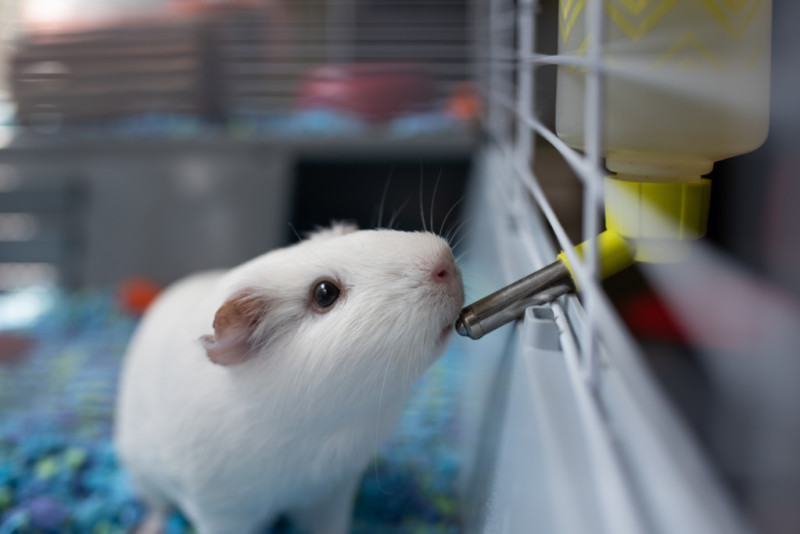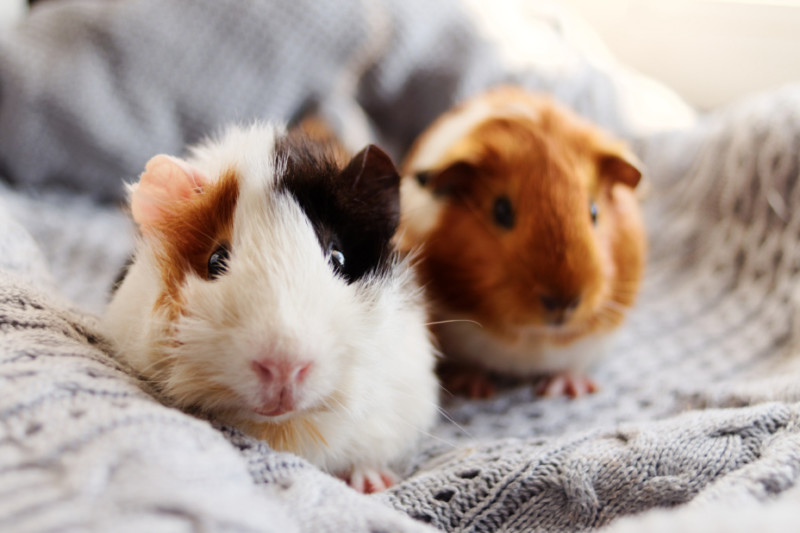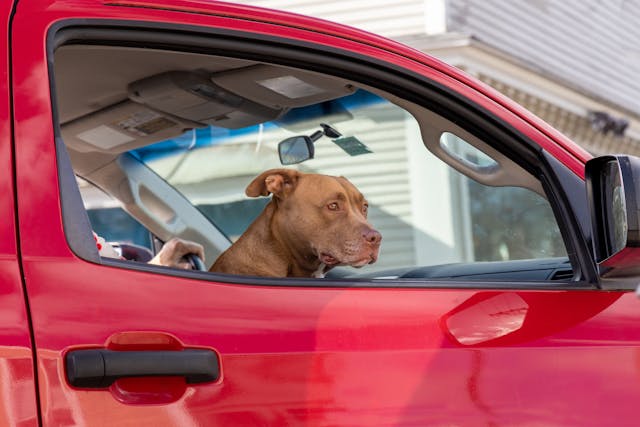
This is a sponsored guest post.
The Do’s And Don’ts Of Guinea Pig Care
A guinea pig is a small animal that belongs to the rodent family. With their fluffy and cute appearance, they make great household pets. Their presence can help make kids happy, making your home much livelier.
If you’re planning to get a guinea pig, knowing how to take care of them is necessary. While you might think that all they need is daily food and water, the truth is, they need love and attention too. Don’t be deceived by their tiny size, as it doesn’t mean less responsibilities on your shoulder as a guinea pig owner.
Do Be Mindful Of What They Can Or Can’t Eat
With the guinea pig’s adorable face, you shouldn’t be tricked into giving them everything they seem interested in. Ideally, you should feed them no more than twice a day to satisfy their hunger and avoid overfeeding them.
Before you give food to your guinea pig, you should check first if it’s safe for them. The last thing you’d want to happen is to see your guinea pig having digestive problems because they’ve been given food they shouldn’t eat.
To help you out with your guinea pig, listed below are some foods that your guinea pigs could safely eat:
- Carrots
- Spinach
- Kale
- Artichokes
- Green and red bell peppers
- Tomatoes
- Oranges
- Apples
- Grapes
- Papayas
- Peaches
- Cucumbers
- Blueberries
- Strawberries
When you feed your guinea pig with fruits and vegetables for the first time, just give them a little at a time as it could disrupt their small stomachs, especially if they consume too much in a day. For example, guinea pigs can eat grapes in the morning and carrots in the afternoon. This will help their bodies adjust to new foods and digest them well.
Along with the foods that are safe for them to eat, you should also provide them with clean water in sipper bottles. This will help keep them hydrated for the entire day, especially during summer.

Sipper bottles are also a cleaner and safer option than water bowls because they can easily knock over their bowls or contaminate them with food or feces.
While it might be tempting to give your guinea pig delicious treats, you shouldn’t offer them one unless you’re sure it’s safe for them to eat. Some foods might be dangerous for them, while others can be unhealthy because they’re high in fat and sugar. Some types of food could be a choking hazard, putting their life at risk. Other foods may cause gas or bloating, making your guinea pig feel sick.
Listed below are some foods that your guinea pig shouldn’t eat at all costs:
- Anything caffeinated
- Garlic
- Onion
- Nuts
- Potatoes
- Avocados
- Cabbage
- Meat
- Dairy products
- Peanut butter
Moreover, you shouldn’t give your guinea pigs any grass, flowers, or plants from your backyard or garden as they might have pesticide residue, which can harm their health. Even with the foods they can eat, it’ll be best if they’re fresh and organic, so you can guarantee they’re free from harmful chemicals.
Don’t Neglect Their Health
Like dogs and cats, guinea pigs need to visit the vet regularly to help them grow healthier and happier. Vets could determine if your guinea pig has any health problems or if they lack proper nutrition. Furthermore, they can teach you to be prepared in case of a guinea pig emergency.
However, guinea pigs don’t need any vaccines as there’s currently no available shot for them. But don’t worry, as a proper diet and exercise are generally enough to keep them healthy. Just ensure they have enough space to move about and provide them with the right food. Given this, they should be able to live a reasonably long life, which is five to eight years on average. By giving your guinea pigs adequate care, you’ll enjoy their company for many years to come.
Do Ensure They Get Enough Vitamin C
Like humans, guinea pigs need to get their daily dose of vitamin C to stay healthy. If they don’t consume enough vitamin C for the day, they could get scurvy, more commonly known as vitamin C deficiency. To help your guinea pigs get the proper nutrition, you should provide them with pellets and treats high in vitamin C.
Aside from keeping your guinea pigs healthy, the right amount of vitamin C is also essential for the normal development of their skin, joints, and gums. Moreover, this vitamin enables their wounds to heal faster. On the other hand, vitamin C deficiency can make your guinea pigs grow weaker and develop infections due to a low immune system.
Don’t Let Your Guinea Pig Be Alone
Guinea pigs are highly social animals. Although a guinea pig can live alone, they’ll thrive with a companion or two.
You’d be able to tell that your guinea pig is lonely by unusual behavior such as loss of appetite, lack of enthusiasm, aggression, or trying to escape from its cage. These are telltale signs that it longs for a cage mate.
However, keeping more than two guinea pigs might be challenging. While maintaining one male and one female guinea pig might sound like a great idea, you might end up having plenty of babies to care for. It’s advisable to have the male guinea pig neutered to prevent unwanted pregnancies.
Do Choose The Right Cage Size
Whether you’re keeping one, two, or more guinea pigs, it’s only practical that you choose the right cage size for them to live a comfortable life. You can opt for a larger cage to give your guinea pigs more space to roam freely and get much-needed exercise. You may also inquire from the pet store about the suitable cage for your guinea pigs. Or you may refer to the following recommended cage size:
- One Guinea Pig: Minimum of 12” x 30” x 36”
- Two Guinea Pigs: Minimum of 12” x 30” x 50”
- Three Guinea Pigs: Minimum of 12” x 30” x 62”
- Four Guinea Pigs: Minimum of 12” x 30” x 76”
A bigger cage is beneficial because the waste will not accumulate as much, making it easier to spot clean. Also, their bathroom needs to be separate from their eating area and space for recreation.
For bedding, paper is ideal. Avoid using wood shavings as these typically contain chemicals that could irritate your guinea pigs’ lungs and feet.
Do Keep Their Environment Clean
No pet likes to live inside an enclosure that’s unhygienic with a lot of clutter. To help your guinea pigs feel comfortable inside their home, you should keep their cage clean. Since their cage is also where they do their business, you have to clean it regularly. If you neglect to do so, they’re likely to develop infections and other illnesses.
Ideally, you should clean your guinea pig’s cage at least once a week, depending on how many you keep. But if you notice that their cage is dirtier and smellier than usual, you shouldn’t wait for an entire week before cleaning it. Weekly cleaning is recommended, but if you can do it more frequently, the better.
Do Provide Them With Toys
Spending their entire day inside a cage can be extremely boring, especially if they have nothing else to do but stare at their surroundings and sleep all day. To keep your pets occupied while you’re gone, provide them with enough toys to play with. Toys could lift their spirits and give them something to do while allowing them to get some exercise.
In most cases, a small tunnel system could keep them entertained for the entire day. But you don’t have to spend a lot on toys as there are items in your house they can chew and play around with. These include crumpled paper balls, cardboard boxes, and toilet paper tubes stuffed with hay.
To prevent your guinea pigs from getting bored, you can rotate their toys every week.
Don’t Keep Them Locked In Their Cage All The Time
As your guinea pigs spend most of the time inside their cages, they long to get out and stretch their legs. Also, they’re extremely playful and would enjoy your company. So, you need to take them out of their cage to play with them. Just make sure you don’t lose track of them, as finding them inside your house can be challenging.
Playtime is also essential for their mental stimulation. Guinea pigs are intelligent creatures and could be trained, but it would take some patience on your part.
Furthermore, having a regular playtime schedule will strengthen your bond with your pets and improve their social skills. Ideally, you should play with them for at least 10 minutes a day.
The Verdict
Having guinea pigs entails a lot of responsibility. They require the same amount of care and attention as other pets, if not more. As a responsible pet owner, you need to provide them with clean and comfortable living quarters, the right kind of food, and plenty of water. Playtime is also critical for these highly social creatures.
If you’re considering getting guinea pigs as pets, be mindful of the do’s and don’ts discussed above to ensure they live a happy and healthy life.
Hi there! I am Emily Evert, the owner of Emily Reviews. I am 28 and live in a small town in Michigan with my boyfriend Ryan and our two pugs. I have a large family and I adore my nieces and nephews. I love reading memoirs, and learning about child development and psychology. I love watching The Game of Thrones, Teen Mom, Sister Wives and Veep. I like listening to Jason Isbell, John Prine, and other alt-country or Americana music. I created Emily Reviews as a creative outlet to share my life and the products that I love with others.
This post currently has 7 responses.
-
I love all the information. Pets and a handful.. just like kids…. you have to protect them and their health. I wish every pet owner would have this information.
-
Such valuable information for anyone that owns or is thinking of having guinea pigs as pets. I have been fortunate enough to have 2 as pets in the past. Many people don’t realize how social and loving they can be.
-
When I was in elementary school, we had guinea pigs in class.I loved them and was able to take one home during winter break. I remember how easy it was for them to get fat. lol
-
Very good tips. I have never wanted one as a pet. I like cats.
-
My middle kiddo has been asking for a guinea pig for a while, but I don’t know much about them so I’ve been hesitant. They sound fun and pretty easy to care for. The list of safe, healthy foods is super helpful to know.
-
Great advice and information. I do hope everyone who has a Guinea Pig would take really good care of them and follow this advice.


















This is such an informative and helpful post, thank you so much for sharing! I grew up with hamsters and lizards, but I have never had a Guinea Pig before! They are so cute and sound like they would be fun to have, I am sure that my kids would love one.